Rotarians Give to Save Coastal Communities in the Philippines
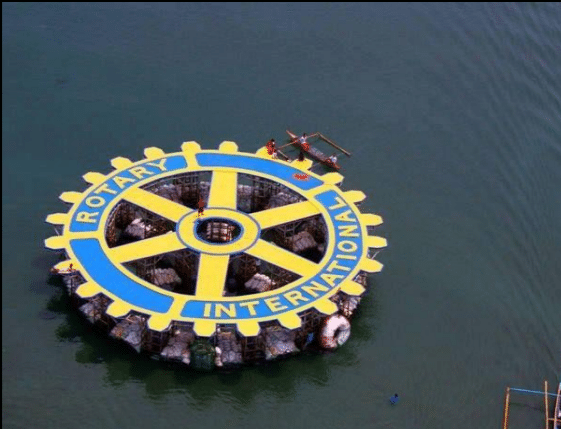
Local villages along the otherwise tranquil waters near Lamon Bay, Philippines, watched hopelessly throughout the 1990’s and early 2000’s, as large-scale vessels using dynamite, cyanide, fine mesh nets, and other nefarious fishing techniques devastated the marine life they had depended on for generations of survival.
Fishing is the foundation of their livelihoods and for nearly two decades they struggled desperately to protect these waters and their way of life. Villagers finally turned to local Rotarians for help and Rotarians saw an opportunity for service. The Rotary Club of Atimonan in Quezon Province, teamed with the Rotary Club of Madera (California) to obtain a Rotary Foundation global grant that built a massive artificial reef in the shape of a Rotary wheel just off-shore from the ancient fishing villages. It is now an iconic symbol of how Rotarians give for peace to empower marginalized societies in our world.
This was a massive Rotary project. The reef cost over $1 million to construct but Rotarians gave generously to provide an innovative solution to this conflict between local villages and larger fishing interests who had no stake in sustainable fishing practices in the area. Rotarians gave for peace and preserved the dignity and livelihoods of the villagers. Rotary’s brilliant peacebuilding strategy empowered the villagers by simply providing marine animals a place to hide in the many underwater nooks of the Rotary wheel.
The Rotary wheel is the largest artificial reef in the Philippines and is covered in coral. It has weathered several typhoons and is home to many species of fish including jacks, surgeonfish, mangrove red snappers, groupers, longfin bannerfish, along with various other forms of marine life. Local fishers who fish in Lamon Bay now return to their families with bounties of fish, unimaginable, if not for the fact Rotarians intervened to make a difference in their lives.
“Before the reef, the fishermen were barely able to catch a kilo (2.2 pounds) of fish,” says Oca Chua, past president of the Rotary club of Atimonan and project chair. “Today they catch fish weighing up to 2 kilos apiece per day.”
The generosity of Rotarians also provided new opportunities for economic empowerment, which is an essential element of peacebuilding. Tourists flock to the Rotary wheel reef to play in the ocean and snorkel, picnic, and even feed the fish. Villagers rent bamboo rafts to these tourists and sell them meals, local crafts, and of course, fish food that tourists distribute to abundant varieties of fish at the reef. This new tourism industry provides a sense of community pride and offers a hopeful future for people who live in this coastal region.
The Rotary wheel reef is a prime example of how Rotarians give to create interventions for peace because they understand the underlying causes of conflict. Tranquility has returned to these coastal waters because Rotarians cared about the plight of these marginalized communities and gave for peace.
Photos of this Iconic and Innovative Rotary Project
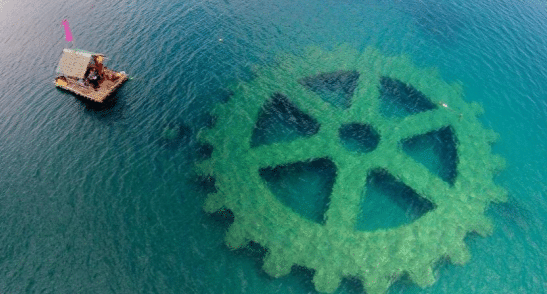
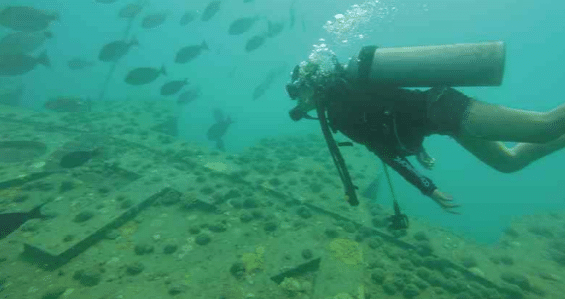
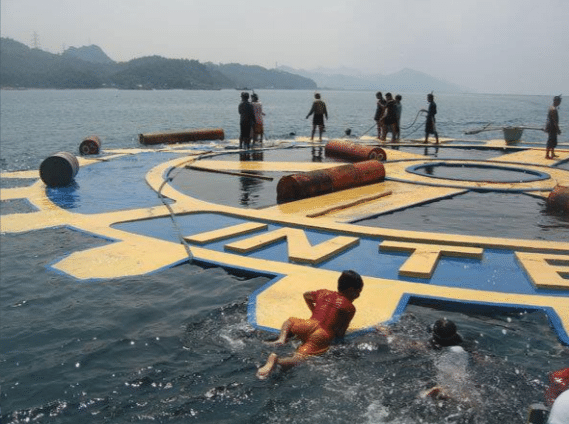
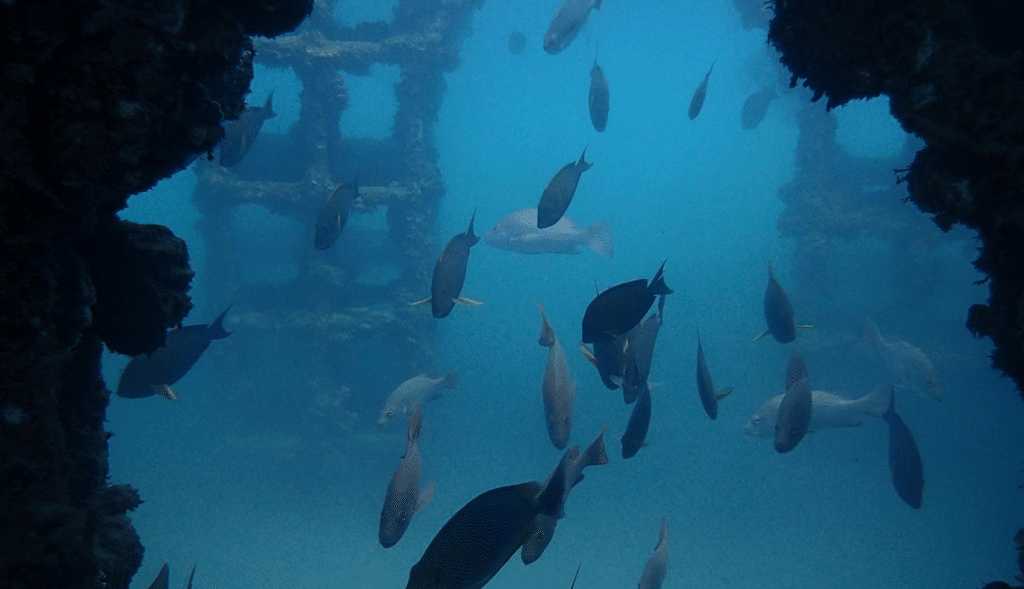
Watch a Video of Snorkelers at the Rotary Wheel Reef
